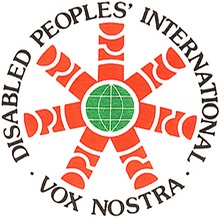New EU Project on How to Achieve Active Citizenship for Persons with Disabilities
The EU-funded project DISCIT – Making Persons with Disabilities Full Citizens had its kick-off event in Brussels on February 27th and 28th 2013. Organised by NOVA – Norwegian Social Research the event featured academics, policymakers and advocates from ten EU countries, Norway, Serbia, Switzerland, and the US. The event included representatives from the European Commission Directorate General for Justice, the International Labour Organization and the European Disability Forum. According to Monica Menapace from the European Commission Directorate General for Research and Innovation “this project represents new ways of meeting social needs which are not adequately addressed by the market or public sector”.
DISCIT aims to produce new knowledge enabling EU Member States, affiliated European countries and the European Union to achieve full and effective participation of persons with disabilities in society and the economy. In investigating the social and political conditions for making such participation a reality, the project adopts a multifaceted understanding of Active Citizenship to clarify the notion of “full and effective participation” in the UN Convention on the Rights of Persons with Disabilities. Regarding the impact of the project, Bjørn Hvinden, Scientific Coordinator for DISCIT pronounces “we are interested in consequences, not intentions”.
DISCIT is a three year project funded by the EU under the Seventh Framework Programme for Research and Technological Development. DISCIT consortium members include universities, research institutes and two civil society organisations. The consortium is supported by a Scientific Advisory Committee with distinguished members from different countries, a European Stakeholder Committee and eight National Stakeholder Committees in Norway, Germany, the Czech Republic, Ireland, Italy, Sweden, the United Kingdom and Serbia.
For more information, visit DISCIT at www.discit.eu or follow the project on Facebook at www.facebook.com/DISCITResearch or Twitter www.twitter.com/DISCITResearch.
